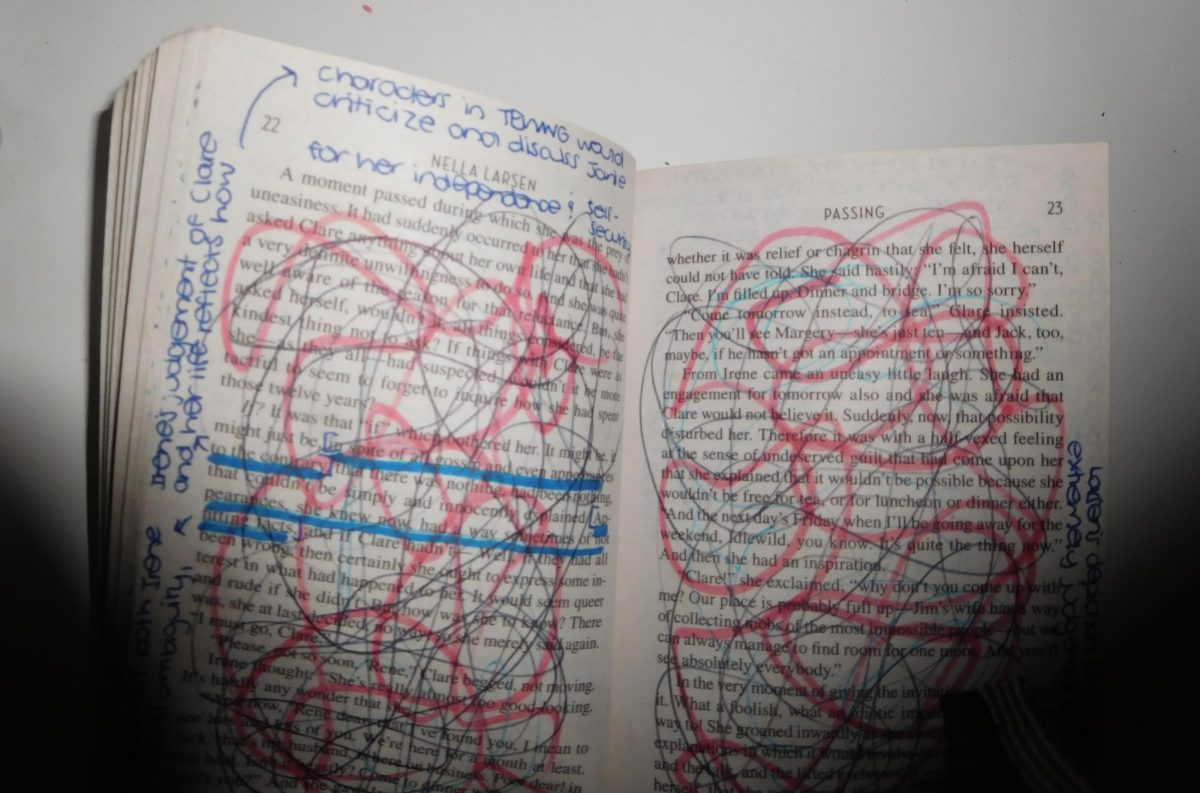Before joining the I.B. program, I was met with a sea of warnings of a dreadful task I’d complete over and over throughout the program. Whilst enjoying my annotation-free life, I thought the caution was dramatic. Nothing could’ve prepared me for the sleepless nights and GPA decline caused by this fateful English practice for an activity I used to enjoy doing.
Many could argue that finding cons for such a resourceful learning strategy would be difficult, but when you’re forced to complete ten annotations for one page and find the significance of words “the” and “a”, maybe you’ll think differently. Obviously, in moderation, annotating is a helpful approach to literary analysis. It forces the reader to consider authorial choices and patterns throughout the text that helps them develop a greater understanding of the book and it’s intent.
What I don’t appreciate however is when it is performed so excessively that all joy and interest in the book is extracted for the reader. For a generation who already holds a great disdain for books, as the next device is placed in their hands, annotating only worsens this hatred. English used to be the one class I would look forward to, free to do and learn however I wished. Now I feel shrouded by limitations and expectations that should not exist. Annotating feels definitive, rectangular- the very opposite of what English should be.
True readers know the passion and excitement involved in reading a good book. The bond that is created between character and reader is one that lives far beyond the book. How are we supposed to relate to the character’s emotions and the author’s thought process when we have to highlight vocabulary every three sentences? It’s disappointing to me that annotating is just another deterrent for reading for kids.
Another factor of this fruitless venture is how time consuming it can be. There are those who take this time to really delve into the text and it’s infinite meanings, but most kids just carelessly highlight or jot down whatever they think their teacher will like. English has no room for appeasement. As soon as learning is turned into a charade for approval, it loses all meaning. The focus is on receiving the best grade, not the content itself.
I understand that from a teacher’s perspective, annotating is a test for their students to see whether they read the material or not. This is something that can be tested in far more engaging, enjoyable ways. Although it’s not the most well-received technique from students, a simple writing assignment truly tests the student’s knowledge and ranges their interaction with a book.
Annotating disgraces the name of English and all it is meant to be. The freedom and creativity that I have always loved English for is completely extricated and is replaced with statures and limitations that should be placed on the teachers who are forcing their kids to find the symbolism of a speck of dust and ponder over the implication of the word “of”. The biggest crime of all though is stealing more and more children’s love for reading; a transgression that will have life-lasting effects on kids and their relationship with books.


